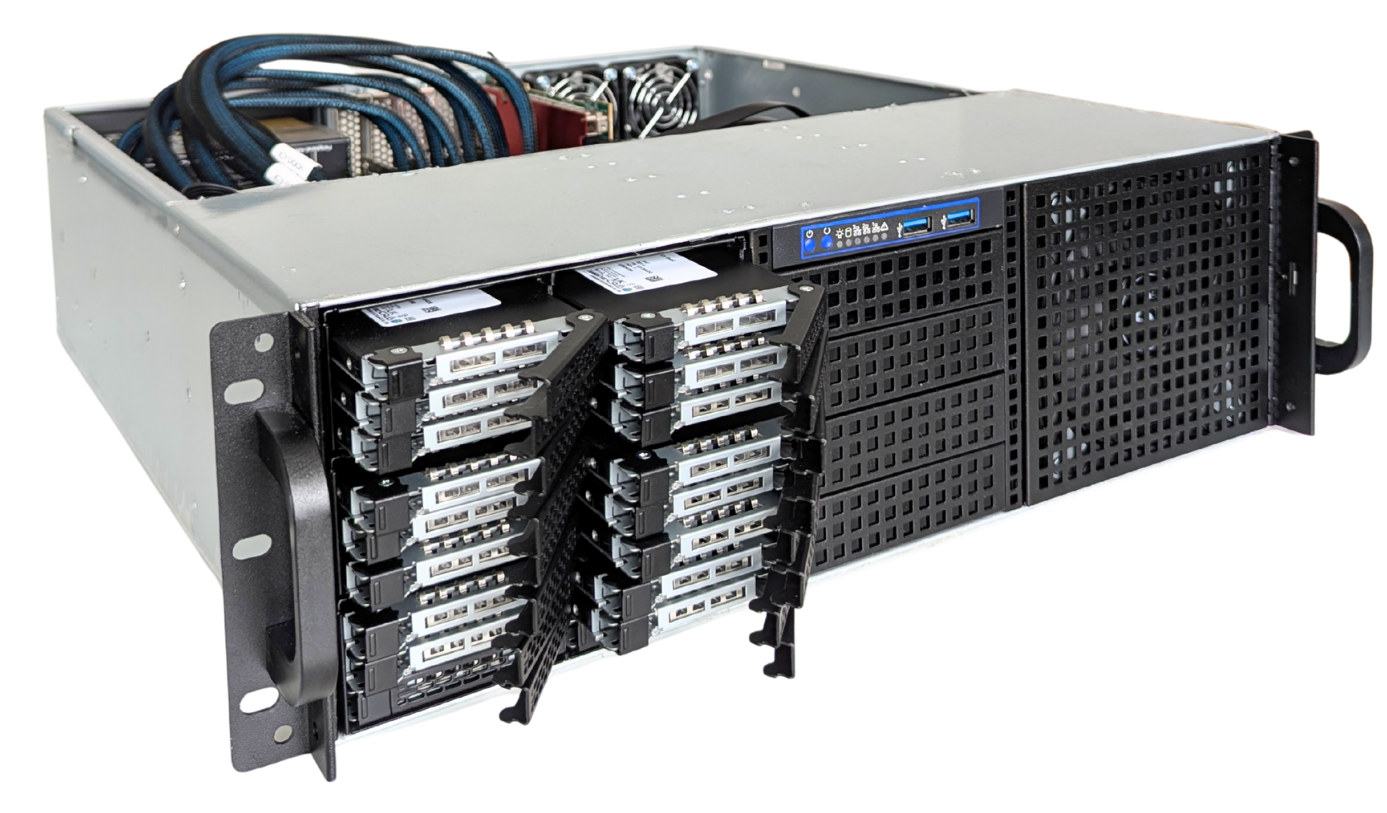MLE NVMe Fast FPGA RAID Recorder System
MLE NVMe Fast FPGA RAID Recorder System
High-Speed Data Acquisition Systems require storing massive data in non-volatile memory. When read/write data rate exceeds the capabilities of single high-performance NVMe SSDs, or an off-the-shelf NAS system causes gaps during data acquisition, then rely on MLE NVMe FFRAID Recorder, a fast and FPGA-based RAID solution for use with NVMe SSDs:

Now, you can transfer bulky data from multiple sensors to a Redundant Array of Inexpensive NVMe SSDs at speeds up to 400 Gbps.
MLE NVMe FFRAID Recorder is a turnkey system – delivered as a ready-to-run appliance – to support data-in-motion pre- and post-processing and is highly scalable with regards to bandwidth and recording capacity.
- MLE NVMe Fast FPGA RAID Recorder System
- 1. Features
- 2. Recorder Turnkey Systems
- 3. NVMe FFRAID Accelerator Description
- 4. NVMe FFRAID Recorder System Choices

